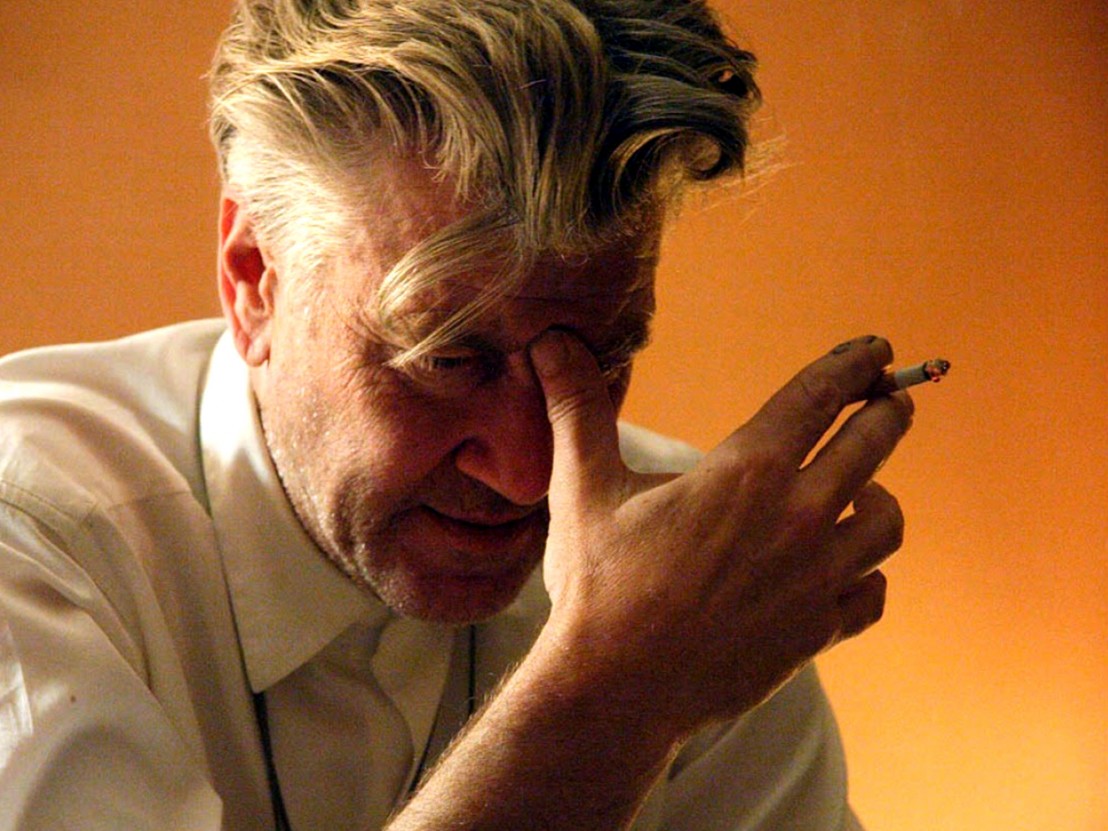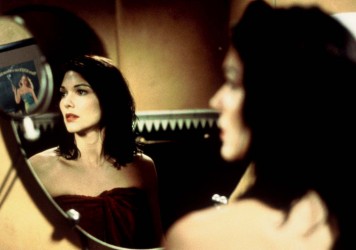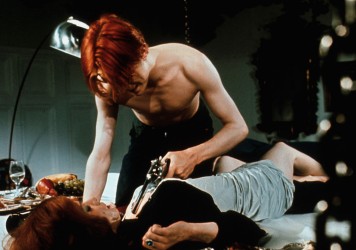
The cult filmmaker shares stories and archive from his childhood, while still managing to remain as elusive as ever.
Despite being an enigma to his fans and the wider public, David Lynch has been interviewed often over the years, usually in support of his films: cult classics such as Blue Velvet, Mulholland Drive, Lost Highway and the newly rebooted Twin Peaks.
What he’s been less keen to do on camera is open up about his personal life. Director Jon Nguyen and his team, who’ve previously worked with Lynch on two behind-the-scenes docs, managed to coax the chain-smoking, coffee-drinking agoraphobic to do just that after the birth of his youngest daughter in 2012. The Art Life offers a peek into the complicated life and mind of one of America’s most original and unusual auteurs, kicking off with happy memories from an idyllic childhood growing up in Montana.
While we see him busily painting a series of abstract pieces at home, we hear Lynch in voiceover fondly recalling his parents and siblings – a bedrock of support that only shifted when he, by his own admission, freaked his father out by keeping dead animals in the basement. “Don’t have kids,” his father told him – a moment that appears to have scarred the artist for life. Things became darker still after the family moved to Virginia, and a teenage Lynch fell in the wrong crowd. Yet, like several moments in the film, the subject refuses to elaborate on what exactly happened.
It’s one of the big frustrations in an otherwise absorbing, abstract film that presents its subject in an appealing, off-kilter way. Lynch paints from dusk till dawn in his Hollywood Hills home, watched by his daughter. We don’t see the young girl’s mother, neither does Lynch discuss any of the women in his life, save his mother. The film blends rare and unseen archive with 16mm treatment of Lynch painting in the Californian sun, ending with the lo-fi shoot for Eraserhead, and his parents’ appeal for the young father to stop and get a paying job. This is essentially Lynch: The Early Years – and it’s full of surprises.
When Lynch does share – recalling the bizarre sight of a naked bleeding woman walking down their street; the time he locked himself away with a radio for two weeks in grief; the moment he stopped stoned in the middle of a highway – the film comes alive. There are no signposts to Lynch’s work (you’ll have to revisit his films to work those out), just the incessant drone of Lynch, set to an original score that proves similarly hypnotic.
The filmmakers apparently pitched the idea to Lynch as a means of sharing his life story with his youngest daughter when she is fully grown. While it falls short on detail in some areas, the essence of Lynch the artist – or at least, what he’s willing to share with his audience – is fascinating to observe, leaving you wanting more.
Published 6 Sep 2016

A new poll of critics conducted by the BBC reveals 100 cinematic marvels.

A previously lost film provides a fascinating insight into the actor’s unorthodox creative process.

Cinematographer Tony Richmond discusses the making of Nicolas Roeg’s 1977 sci-fi opus.